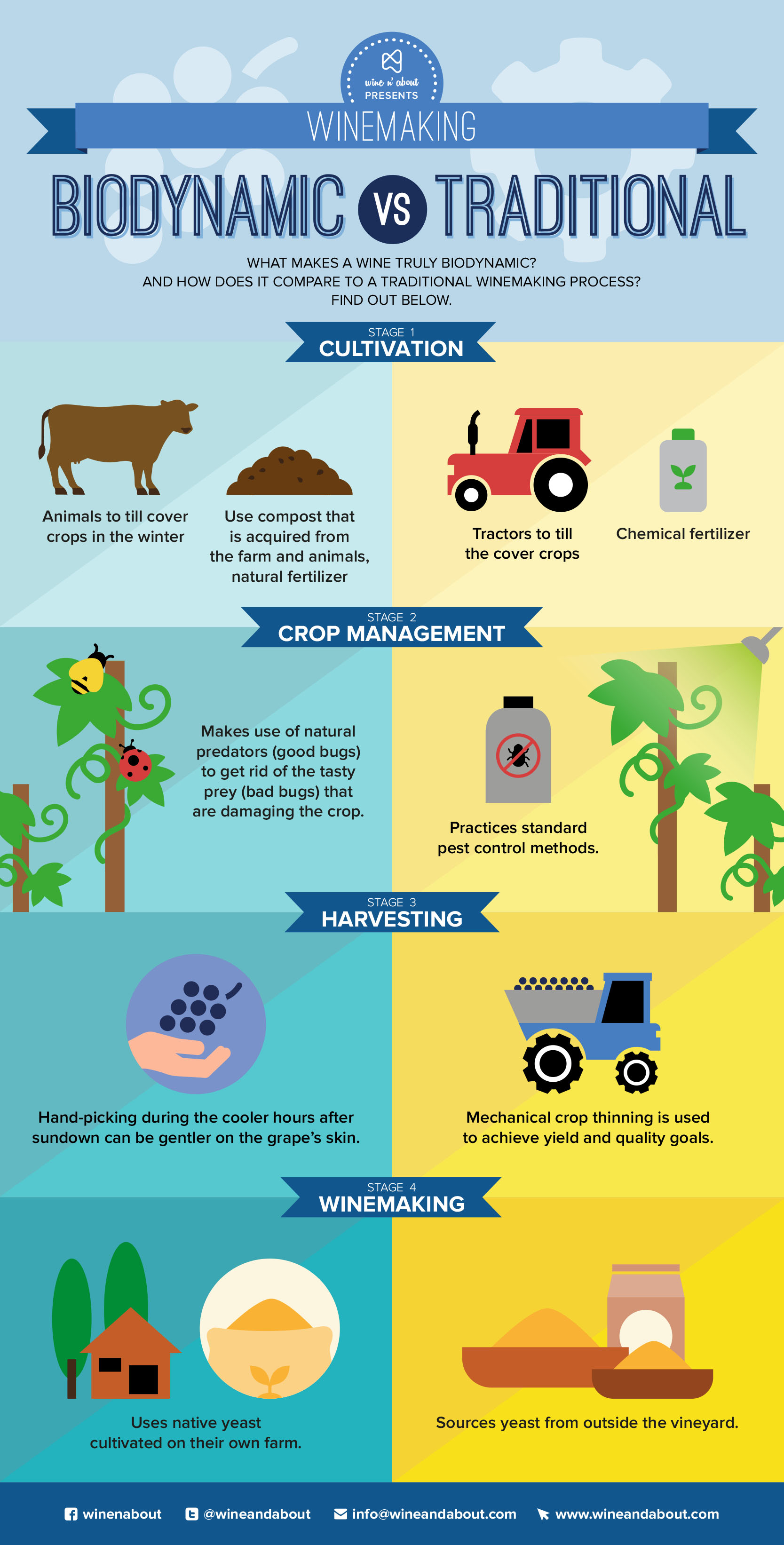Lately there is more and more interest in organic wines, but there is also a lot of confusion on what is the difference between traditional, organic, and biodynamic winemaking.
Generally speaking, organic wines are made from grapes grown without the use of chemical fertilizers, pesticides, fungicides and herbicides.
Winemaking techniques should be organic as well. Little or no manipulation of the wine by reverse osmosis, excessive filtration, or flavor additives (such as oak chips). Many organic winemakers also prefer wild yeasts for the fermentation.
The use of added sulfites is heavily debated within the organic winemaking community. Many vintners favor their use, in extremely small quantities, to help stabilizing the wine, while others completely frown at them.
Biodynamic is similar to organic farming since both are done without synthetic chemicals.
The concept behind biodynamics is that everything in the universe is interconnected and gives off a resonance or ‘vibe’. The interconnectivity of everything even includes celestial bodies like the moon, planets and stars. Biodynamic viticulture is the practice of balancing this resonance between vine, man, earth and stars.
The concept of Biodynamics started in the 1920’s with the Austrian philosopher Rudolph Steiner. It is a holistic, homeopathic way of farming, including viticulture. It is the oldest, anti-chemical agricultural movement that predates the creation of organic farming by about twenty years.
Moreover, no chemicals or ‘manufactured’ additions (like commercial yeast) are allowed in biodynamic wine. Instead, wine growers make special compost preparations with natural ingredients to bolster their vineyards.
Here it a short comparison between traditional and biodynamic winemaking. Cheers!




 0
0